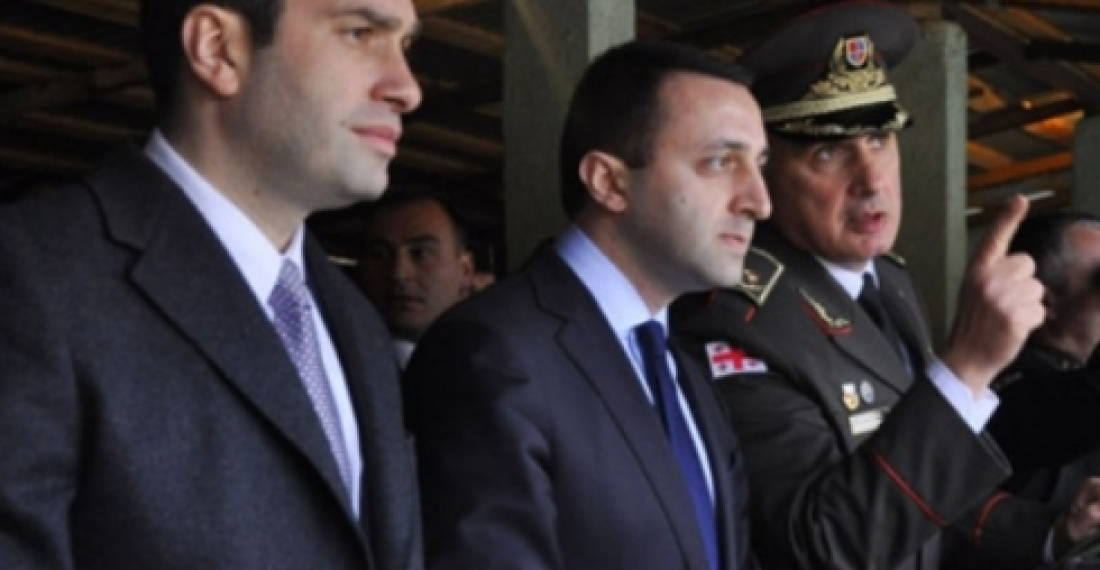Joseph Alexander Smith reports from Tbilisi for commonspace.eu on forty-eight hours of political drama that has shaken the ruling coalition in Georgia.
Georgia is in the midst of an ongoing political crisis after the dismissal of the Minister of Defence, the subsequent resignation of two key ministers and a split within the ruling coalition. The unexpected turn of events has left Georgia's EU and NATO partners questioning whether the country's government is still committed to a pro-Western foreign policy course.
The crisis was sparked on Tuesday night when the Prime Minister, Irakli Gharibashvili, announced the dismissal of Iraklia Alasania, Georgia's Minister of Defence since October 2012. One former and four serving officials in Alasania's ministry had been arrested in relation to an allegedly corrupt tender. Alasania, who was in Germany at the time, protested the detentions, shortly before new charges were filed against several army medical staff.
Alasania denounced the charges as "obviously politically motivated" and "an attack on Georgia's Euro-Atlantic choice." The Prime Minister responded by labelling the Defence Minister's remarks "irresponsible" and promptly sacking him.
The dismissal of the Defence Minister, was shortly followed by the resignation of Alexi Petriashvili, the State Minister for Euro-Atlantic Integration and a fellow member of Alasania's Free Democrats party. The following day, Minister of Foreign Affairs Maia Panjikidze (who is also Alasania's sister-in-law), announced her resignation along with some of her deputies. Justice Minister Tea Tsulukiani, who is affiliated with the Free Democrats and whose departure was also expected, has announced that she will remain in her post.
All deputies in the Defence Ministry were dismissed and Alasania's portfolio was handed to Mindia Janelidze, a little known figure who has previously served as security advisor to the PM and head of counter-intelligence during Gharibashvili's tenure as Interior Minister.
After a political council on Wednesday, the Free Democrats announced that they would withdraw from the ruling six-party Georgian Dream (GD) coalition which came to power 2 years ago under the leadership of billionaire businessman Bidzina Ivanishvili. The departure of all ten Free Democrat MPs would leave the coalition three seats short of a clear majority in the 150 seat parliament, but it remains to be seen whether all members will leave the majority bloc.
Although the Prime Minister has emphatically re-iterated his government's commitment to a pro-Western foreign policy course, the loss of three ministers central to the process of Euro-Atlantic integration has left many of Georgia's foreign partners alarmed.
Alasania himself is a well-known figure abroad, having served as Georgia's UN Ambassador during the 2008 war with Russia. According to a recent opinion poll conducted by the National Democratic Institute, Alasania is also Georgia's most popular politician.
Former Swedish Foreign Minister Carl Bildt tweeted about the "Grave political crisis in Georgia. Attacks on and sacking of DefMin Alasania. Path of the country under threat." Speaking of "legitimate concern that the judicial system is being used in a politicized way", US Ambassador to Georgia, Richard Norland, commented that "at a time of regional turmoil and domestic economic challenge what Georgia needs the most is stability, unity, demonstrated commitment to due process and the rule of law, and public confidence in democratic institutions." However, NATO's Caucasus envoy, James Appathurai, was more guarded in his comments, acknowledging the Prime Minister's "clear statement that these developments will not divert Georgia from its Euro-Atlantic path" which he believes "reflects the will of the Georgian people."
In comments made on Georgian TV shortly after his dismissal, Alasania made an explicit link between his sacking and Georgia's foreign policy choice. He also, alluded to President Giorgi Margvelashvili's recent comments that Georgia should be ruled by "strong institutions, not from backstage", implying that the order came from GD founder Bidzina Ivanshvili, whom many believe still exerts a strong influence on Prime Minister Gharibashvili.
Alasania has also suggested that his dismissal serves Russian interests, represented by ‘groups' within the government that he refused to name when pressed. While the accuracy of Alasania's account remains to be proven, political instability and the chance of early parliamentary elections, current scheduled for 2016, could open up space in the political arena for more conservative opposition parties which are skeptical of Georgia's EU and NATO ambitions and open to closer relations with Russia.
source: Joseph Alexander Smith reporting from Tbilisi for commonspace.eu
photo: Irakli Alasania and Irakli Gharibashvili reviewing military exercises of Georgia's special forces in November 2013. (photo courtesy of civil.ge)







